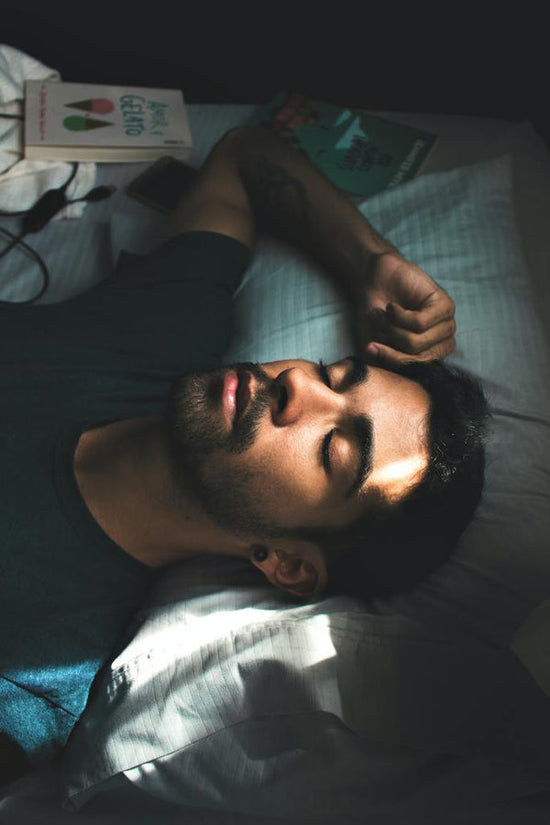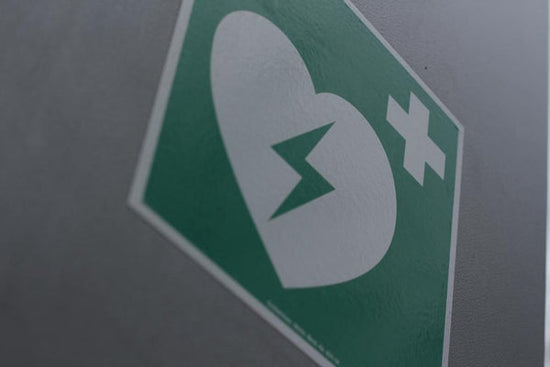Introduction
In today's fast-paced world, it's easy to get caught up in the hustle and bustle of daily life. We often prioritize work, socializing, and other activities over getting enough sleep and nourishing our bodies with healthy foods. Opting into a fast food indulgence is an incredibly appealing option when there's no breathing room during the day. However, the truth is that sleep and nutrition are crucial for our overall health and wellbeing. In fact, they are intricately connected, and one can significantly impact the other.

We're dropping a sleep smoothie recipe book to our email subscribers! Join below for your FREE copy:
The Importance of Sleep for Our Health
Sleep plays a vital role in our body's ability to function correctly. During sleep, our bodies go through several essential processes that allow us to recharge and prepare for the day ahead. This includes repairing tissues, consolidating memories, and releasing hormones that regulate our appetite and metabolism. When we don't get enough sleep, our bodies can't perform these critical functions correctly, leading to a range of health problems.

The Impact of Nutrition on Our Sleep Quality
On the other hand, the food we eat can also impact our sleep quality. Certain foods and beverages, such as caffeine, alcohol, and sugary snacks, can interfere with our ability to fall asleep and stay asleep. Conversely, other foods can promote better sleep, such as those rich in tryptophan, magnesium, and melatonin.

Foods That Promote Better Sleep
- Tryptophan is an amino acid found in foods like dairy products, turkey, chicken, and even plant-based alternatives like tofu, tempeh, and soybeans. These vegan and vegetarian sources of tryptophan can help increase serotonin levels and promote relaxation.
- Magnesium, found in leafy greens, nuts, and whole grains, is also essential for better sleep. Vegans and vegetarians can get their magnesium from sources like spinach, almonds, cashews, quinoa, and brown rice.
- Melatonin is a hormone that regulates our sleep-wake cycle and is naturally produced in our bodies. Foods such as tart cherry juice and walnuts are high in melatonin and can help promote better sleep. Vegans and vegetarians can also get their melatonin from plant-based sources like goji berries, cherries, and almonds.
By incorporating foods that promote better sleep into your diet, you can reap the benefits of powerful sleep feeling more peaceful, satiated, and relaxed.

Using Nutrition to Improve Sleep Quality
So how can we use nutrition to improve our sleep? The first step is to make sure we are eating a balanced diet that includes plenty of whole, nutrient-dense foods. Avoid processed foods, sugary snacks, and caffeine in the evening, as these can all disrupt our sleep. Instead, try incorporating foods that promote better sleep, such as those rich in tryptophan, magnesium, and melatonin. Finally, it's essential to establish healthy sleep habits, such as sticking to a regular sleep schedule, creating a relaxing bedtime routine, and avoiding screens and other stimulating activities before bed.
Clinical Trial
A recent clinical trial conducted by researchers at Columbia University found that improving diet quality can lead to better sleep. The study involved 26 adults who reported poor sleep quality and consumed a diet high in processed foods, sugar, and saturated fat.
Participants were instructed to follow a healthy diet for 16 weeks, consisting of whole, nutrient-dense foods like fruits, vegetables, whole grains, and lean proteins. The researchers found that participants who followed the healthy diet had significant improvements in their sleep quality, including increased total sleep time and reduced time spent awake during the night.
The study's lead author, Dr. Marie-Pierre St-Onge, suggests that the link between diet and sleep may be related to the gut microbiome, as a healthy diet can improve gut health and subsequently improve sleep. The study's findings support the idea that improving diet quality can be a non-pharmacological approach to improving sleep quality.
This clinical trial highlights the significant impact that nutrition can have on our sleep quality. By prioritizing whole, nutrient-dense foods in our diet and avoiding processed foods, sugar, and saturated fat, we can improve our gut health and subsequently improve our sleep quality. So the next time you're struggling to fall asleep, consider making some dietary changes to fuel your dreams and get a better night's sleep.

Conclusion
In conclusion, sleep and nutrition are two critical pillars of our overall health and wellbeing. By understanding the powerful connection between the two, we can make simple changes to our diet and sleep habits that can have a profound impact on our health and quality of life. So the next time you're feeling tired and rundown, remember to fuel your dreams with healthy foods and prioritize getting a good night's sleep. Your body will thank you!

Are You an Athlete?
Athletes need nutrition and sleep for more than a good night's rest - they need it for peak athletic performance. Choosing the right foods and getting the right amount of sleep can make the difference between a victory and a defeat. Here are a handful of tips:
- Invest in better sleep equipment. A professional athlete only goes into competition with only the best equipment. Why not treat sleep equipment the same way? Here is a list of 2023's highest rated sleep products on Amazon, hand-picked by sleep experts from SnoreLessNow. Performance starts in the bedroom before it starts on the field.
- Start tracking quality of sleep. Tracking sleep sounds like a daunting task, but it's nothing compared to the dedication and consistency of improving skills as an athlete. Consider tracking sleep another important skill - it's been made easy through printable sleep trackers like the one found in this guide. Many regular sleep disturbances go untreated because they go unrecorded - and athletes miss out on capturing critical hours of sleep!
- Addressing causes for sleeplessness. Performance during game time is one thing, but performance in an athlete's personal life is another. There are several contributors to poor performance of sleep, such as anxiety, insomnia, or sleep apnea. Finding clinical solutions for these conditions can significantly improve overall sleep. A toxic relationship can be a strong driver of anxiety and sleepless nights, find solutions here.
Read the rest of this article on athletic performance and sleep here!








